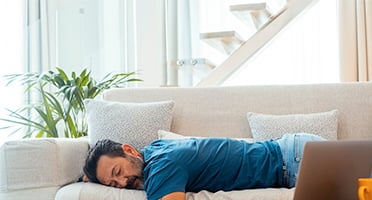
Feeling tired all the time, even after a full night’s sleep? You might be suffering from sleep apnea. Discover how an at-home sleep test can help diagnose the root cause of your fatigue—and get you back to feeling like yourself.

Spring is here—and so is the pollen. For the millions dealing with seasonal allergies, the symptoms can be more than just annoying. And if you also have sleep apnea, those stuffy nights and restless sleep can get even worse.
Let’s take a closer look at how spring allergies and sleep apnea affect each other—and what steps you can take to sleep more comfortably.

Love can be fiery and passionate or sweet and steady—but snoring? Not so much. Whether you're in the honeymoon phase or years into your journey together, snoring can shake up a relationship. With Valentine’s Day around the corner, let’s take a fun look at how snoring can impact your love life.

New Year’s resolutions are made with the best intentions—hitting the gym, eating healthier, and committing to self-improvement. Millions of people dive in, signing up for memberships, filling their fridges with fresh produce, and stacking self-help books on their nightstands. But as the months go by, workouts slow down, nutritious meals are replaced with convenience foods, and those books remain unread. Why do so many resolutions fail? One major factor that often gets overlooked is sleep. Poor sleep can derail motivation and energy, making it harder to stick to your goals. Let’s explore how a sleep test could be the key to staying on track.
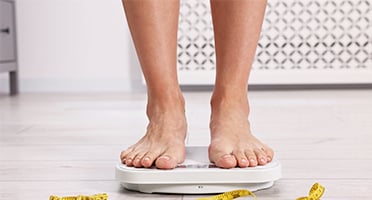

As 2024 draws to a close, it's the perfect time for both Medicare beneficiaries and those with private insurance to take a closer look at their health coverage and consider prioritizing their sleep health. Many people don't realize that they may have already met their annual deductible, opening up an opportunity for more affordable healthcare. At SleepTest.com, we want to help you take advantage of these potential savings while addressing your sleep concerns.
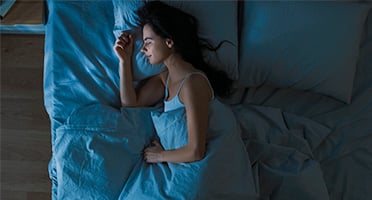
October is a month of awareness and action, particularly as we recognize Breast Cancer Awareness Month. Just as we shine a light on the importance of early detection and treatment for breast cancer, it's crucial to also address another silent struggle affecting many women: obstructive sleep apnea (OSA). OSA is a prevalent sleep disorder that affects millions of individuals globally, yet it often remains undiagnosed and untreated in women. At SleepTest.com, we are dedicated to raising awareness about this critical issue and empowering women to recognize the signs of sleep apnea. Understanding this condition is the first step toward reclaiming your health and improving your quality of life.
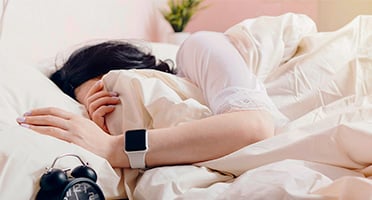
The world of wearable technology is making waves in sleep medicine, with Apple and Samsung at the forefront of innovation. These tech giants are now offering groundbreaking tools to detect sleep apnea, a common yet often undiagnosed sleep disorder. At SleepTest.com, we're thrilled to dive into these advancements and explore their potential impact on sleep health.
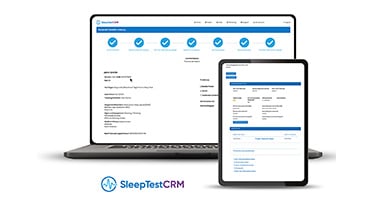
As a healthcare provider, offering patients convenient and accurate diagnostic tools is crucial for delivering high-quality care. When it comes to sleep apnea testing, SleepTest.com provides an excellent solution that can benefit both you and your patients. SleepTest.com provides streamlined patient care options that allow in-home testing, a solution more appealing to many people from start to finish.
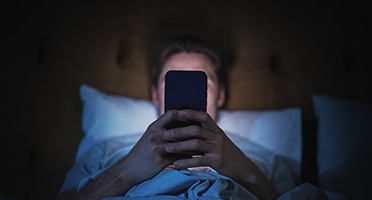
In our fast-paced, digitally driven world, we find ourselves in front of screens all day long, right up to the time we go to bed. All that constant exposure to computer screens, tablets, phones, and other devices can impact the quality of sleep we get, particularly if we don't put the devices away early enough. As we head into spring, when everything is coming back to life, why not breathe life into your sleep by enforcing a little digital detox?
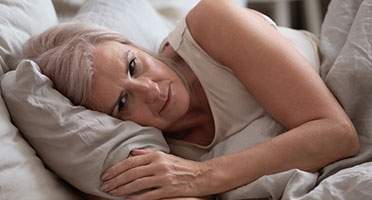
Getting good sleep is crucial to our overall health and well-being. It is the foundation for a healthy lifestyle and is essential for mental fortitude. A good night's sleep not only promotes physical health but also helps improve our mood and prevent mood swings, irritability, anxiety, and depression. However, as we age, it can become increasingly difficult to get proper sleep, and we may not even realize it at first. To better understand the science of sleep, we need to know what our body needs, be aware of the symptoms of poor sleep, and explore ways to improve our sleep quality to become a happier and healthier version of ourselves.
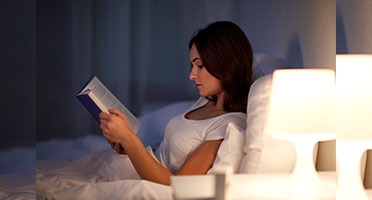
There are few things as important as getting good sleep, yet we have many behavior patterns that can leave us tired each morning without realizing it. While a few nights of poor sleep aren't so bad, it isn't good to get into a habit. Your body needs quality sleep. It is important for brain function and mental health. What's more, poor sleep can lead to chronic physical health problems. Who needs that? Let's make 2024 the year you started getting better sleep. Here are ten tips that can help you sleep better.
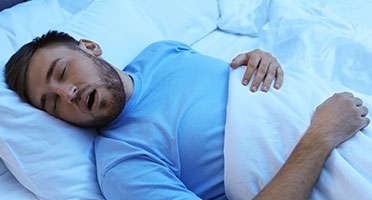
Many couples joke about their partner’s snoring and often kick the snoring spouse to the couch or guest room, but snoring may indicate a severe medical condition such as Obstructive Sleep Apnea. While snoring may seem like an annoyance that you have to put up with because your marriage vows say you have to take the good and the bad until death do you part, snoring is the sound people make when they struggle to breathe during sleep.

Many of your patients may not get how severe Obstructive Sleep Apnea (OSA) is when left untreated. If their at-home sleep study indicates mild sleep apnea, they may not see the need for immediate treatment, and some people are likely to put off sleep apnea treatment indefinitely.
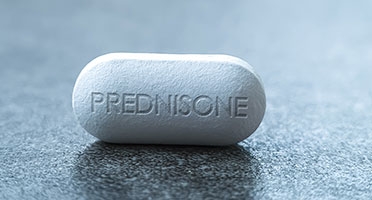
Before diving into what drugs may contribute to sleep apnea, it’s important to clarify that the upcoming list of medications has not been shown to cause Obstructive Sleep Apnea (OSA), the most common of the three types of sleep apnea. However, these medications result in weight gain and some other symptoms tied to sleep apnea.
We encourage you to never stop taking medication until speaking to the prescribing physician. The information contained here is meant to show you that sleep apnea results from several factors—medication is just one of those many factors.

In recent articles, we’ve discussed how to explain why dentists are treating Obstructive Sleep Apnea, and we’ve given some guidance regarding explaining what to expect with a home sleep study. Let’s now look at some of the most frequently asked questions about sleep apnea you’re likely to get asked during a new patient appointment.

Understanding the symptoms and available tests is crucial if you suspect you have Obstructive Sleep Apnea (OSA) or have been recently diagnosed. The terrible sleep, the waking up feeling tired, the daytime fatigue, the sore throat in the mornings, headaches, and the lack of concentration and memory.
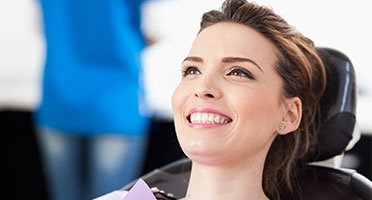
If you're a dentist who treats sleep apnea, you've probably heard this question more than once. Many of your patients with Obstructive Sleep Apnea will likely have been to medical doctors for treatment. Some may already be using CPAP and cannot tolerate it. Others will have been to other dentists who did not have the education and training to treat this complex but prevalent breathing-related sleep disorder.

Millions of Americans are plagued with poor sleep. Night after night, no matter how exhausted they are, sleep eludes many people, and a blissful night of eight hours of sleep is a rare occurrence. Some people haven’t had a restful night of sleep in their entire adult lives, while others are just now having sleep-related issues for the first time.

It’s important that all medical doctors, dentists, and other healthcare professionals empathize with their patients. You must understand, or at least appreciate, what your patients are experiencing and feeling in order to relate to them and understand their concerns. While clinical skills make a good doctor or dentist, understanding the patient’s experience makes great doctors and dentists. Here, you will learn what your patients experienced with their home sleep test in hopes that you’ll gain a better understanding of what they went through to arrive at your office for Obstructive Sleep Apnea treatment.
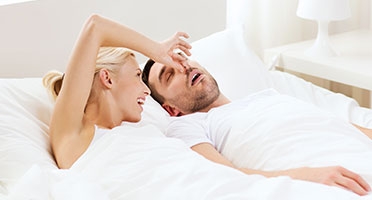
You often hear jokes couples make about the other one snoring, but snoring is actually an indication that something is physically amiss with your partner. While we like to tease loved ones about their loud snoring keeping the whole house awake, snoring usually indicates some type of breathing-related sleep disorder that may need medical attention.

Medical professionals have always been tasked with explaining conditions and treatments in terms their patients can understand. With so many online medical resources, people often research conditions and treatments to better understand what their doctors and dentists say. If you’re a sleep dentist wondering how to explain the obstructive sleep apnea/dentist connection to your patients, we have some ideas that may help you.

Obstructive sleep apnea (OSA), like many other diseases and medical conditions, manifests differently in men and women. While this type of sleep apnea is the most common sleep disorder in the world, it does look different in women than men. Also, while men are more likely to develop OSA, many women have it but go misdiagnosed or undiagnosed for many years because of various factors that will be explored here.

Millions of people struggle with sleep for a number of different reasons. There may be physical reasons for poor sleep, emotional reasons for inconsistent sleep, or some combination of physical and mental struggles that cause sleep to be elusive.
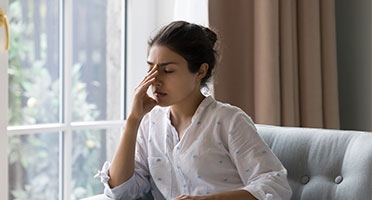
If you are tired of poor sleep, daytime fogginess, constant fatigue, and stress from never feeling well rested, it may be time to explore the possibility that you suffer from Obstructive Sleep Apnea (OSA). Millions of people have OSA, and many of those people suffer the adverse health effects of OSA for years (even decades) before getting a proper diagnosis and treatment for this serious sleep disorder.
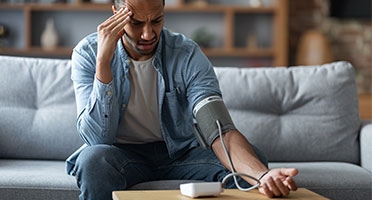
Have you ever been tired and groggy despite a full night's sleep? If you or someone you know snores regularly, sleep apnea could be the culprit. Sleep apnea is when breathing is repeatedly interrupted during sleep, leading to a lack of oxygen in the body. This can cause snoring, gasping, and even choking while sleeping. Sleep apnea has been linked to a host of health problems, including high blood pressure, diabetes, and stroke.
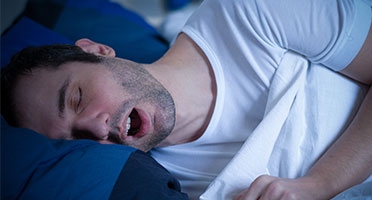
An estimated 29.4 million adults in the U.S. have sleep apnea, and 80% go undiagnosed and untreated. Unfortunately, many men write off their sleep apnea as insomnia, and women underreport snoring. This makes it difficult for physicians and dentists to screen for sleep apnea, diagnose, and provide life-changing treatment.

27.4% of adults take melatonin as a sleep aid, according to the Sleep Foundation. Most of those say that it helps them fall asleep faster and take it on average four days per week. Melatonin pills are widely available over the counter in drug stores and grocery stores but it’s also a natural hormone that our bodies produce as a response to darkness to help us fall asleep. So, if our bodies make melatonin naturally, wouldn’t it be okay for those with sleep apnea to take more of it? Simply, no. Melatonin is not recommended for those with sleep apnea. Here’s why.
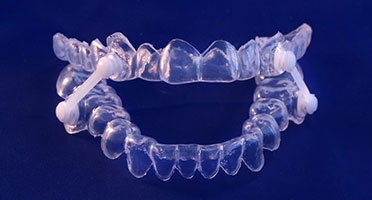
Finding out that you have obstructive sleep apnea is equal parts relief and uncertainty. On the one hand, you’ve finally discovered the cause of your snoring, daytime sleepiness, and cognitive changes. On the other hand, you’re left with a choice, should you use CPAP or oral appliance therapy to treat your sleep apnea?
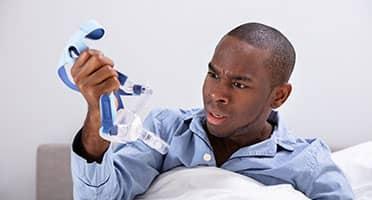
Did you know that sleep apnea is 80% undiagnosed? That means that most people with sleep apnea don’t know they have it or have a suspicion that they do but haven’t been tested. That’s a scary thought because non-diagnosis means non-treatment. And when you go without sleep apnea treatment, you succumb to sleep apnea’s symptoms and put yourself at risk for other conditions that can arise due to sleep apnea.

Learning that you have sleep apnea can be both a relief and frustration. Relief because you finally have answers to why you’re so tired during the day, wake up with headaches, and have a short fuse (among other symptoms!). Frustration because it’s just another thing you have to deal with. Sometimes it feels like the punches just keep coming.
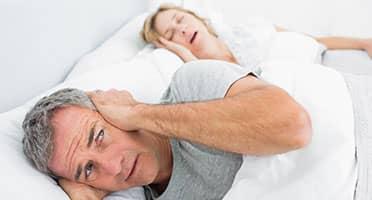
Sleep apnea is a sleep-disordered breathing condition characterized by pauses in breathing while you sleep. These pauses last anywhere from several seconds to much longer, depending on the severity of your condition, and can happen hundreds of times per night. Sleep apnea leaves you unrested and irritable with headaches, memory problems, and more. If you’re experiencing sleep apnea symptoms, get a home sleep test from SleepTest.com to find out if you have sleep apnea, what type you have, its severity, and your treatment options.
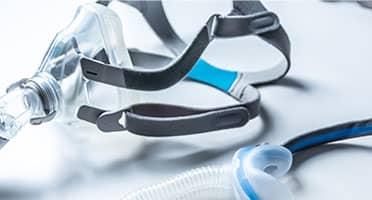
For many, fears about sleep apnea treatment are scarier than the possibility of having sleep apnea. It may seem attractive and easy to blissfully ignore the likelihood of sleep apnea, even when experiencing daytime sleepiness, morning headaches, and cognitive decline. But it’s crucial to get a sleep study if you suspect you may have sleep apnea.
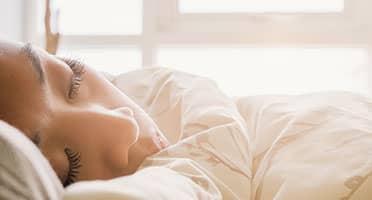
Traditional sleep apnea testing is done in a lab over one night. It’s called in-lab polysomnography. You go to a sleep testing lab for one night, and sensors and a tech monitor your sleep for the night. The data is then given to a sleep doctor who would diagnose you or not. However, the problem is that sleep apnea episodes fluctuate nightly, making the severity of your sleep apnea hard to diagnose in just one night of monitoring. Not only that, but sleep testing labs can be uncomfortable, like sleeping in a hotel. You may or may not sleep as you normally would at home.
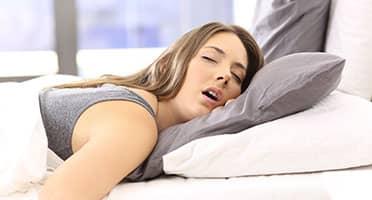
One thing many people fear when they worry about sleep apnea is sleep apnea surgery. Rightly so, undergoing surgery for anything is a bit scary. However, sleep apnea surgery isn’t usually necessary because other, less invasive treatments work better.

Sleep apnea is 80% undiagnosed and untreated, but it’s familiar enough that many people are aware of it. You may even know someone receiving treatment, or maybe you are experiencing symptoms of sleep apnea and are wondering if you should get tested. Sometimes, we think of sleep apnea as simply not getting enough sleep. While this is true, it’s more complicated than that. Untreated sleep apnea leads to health consequences throughout your entire body. One such consequence is dementia. If you have sleep apnea, treating it can lower your dementia risk.

Do you wear a smartwatch to bed? If you do, you know that it tracks your sleep. It provides data on how long you slept, how long you spent in each stage of sleep, and how many times you woke up throughout the night. More sophisticated watches estimate blood oxygen saturation, snoring, sleeping heart rate, and restlessness. You’d think you could diagnose your own sleep disorder with all that information, but a doctor still needs to provide a diagnosis. Here’s why.
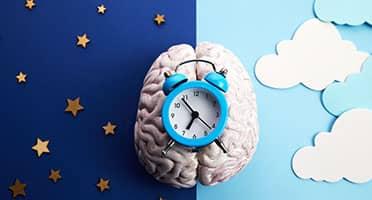
Your body performs many complicated processes to keep you alive and healthy throughout the day and night. Each system has a different purpose that has evolved over thousands of years to ensure the survival of our species. One such process is sleeping. The more we find out about it, the more we realize that it’s not just our brains that need sleep. It’s our entire body. And even when we think we’re sleeping fine, we may inadvertently be triggering a body response that prevents us from getting the restful sleep we need to be truly healthy. In a 2022 study, researchers found that sleeping with even a tiny amount of light can have health consequences.
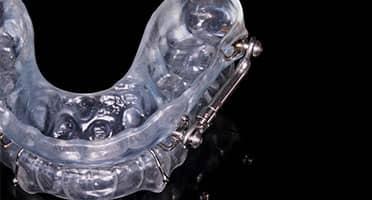
With three different types of sleep apnea and multiple treatment options, you can feel overwhelmed and like your situation is hopeless. Not only that, but you’re suffering detrimental sleep apnea symptoms, making your personal, professional, and social life seem like a chore. Choosing the right treatment for sleep apnea shouldn’t be so hard.
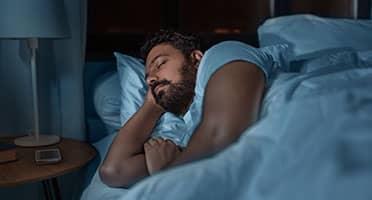
Many people suffer from sleep deprivation. In fact, as many as 50 – 70 million Americans suffer from a sleep disorder that significantly impacts their lives. One such disorder is sleep apnea. Sleep apnea is when you experience interruptions in breathing throughout the night. These interruptions can last 8 seconds or longer, depending on the severity of the disorder. They can happen hundreds of times per night, preventing your body from getting the oxygen and sleep it needs to function in the following days.

Sleep apnea is a sleep disorder that plagues millions of people worldwide, with many cases going undiagnosed and untreated. When you have sleep apnea, you experience pauses in breathing while you sleep. These pauses can last anywhere from 10 seconds, a minute, or even longer before your brain panics and awakens you so you can resume breathing. You may not always notice these awakenings, but they can happen hundreds of times during the night for those who suffer from sleep apnea. Your lack of sleep and interruptions in your sleep cycle results in consequences like daytime sleepiness, morning headaches, and snoring. While you think you may be able to deal with those, there are other, more dangerous effects of untreated sleep apnea, too, like increased risk of stroke, diabetes, and heart disease.
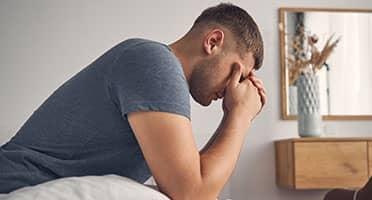
Between balancing work, family life, and your social life, it can be hard to find time to go to the doctor to address your sleep apnea. And yet, when you aren’t sleeping well, it can be even harder to balance all those different aspects of life. When we sleep, our brain and body work on restoring themselves so we’re ready for the next day. And if that can’t happen, how can we expect ourselves to manage that balancing act?

Do you think you might have sleep apnea? A great way to diagnose this condition is with a home sleep study. Don’t worry–you can have a sleep test sent directly to you and take it in the comfort of your own bed. Then, if your results indicate that it’s appropriate, we can connect you with a local dentist from our network that can fit you with a custom oral appliance for easy treatment.
For many dentists and doctors, the biggest obstacle to treating their patients’ obstructive sleep apnea is getting a sleep test. Patients must visit a separate office for a consultation before getting a sleep test. A sleep physician may also recommend a test at a sleep lab, which may be unnecessary and can lead patients to put off getting a test.


